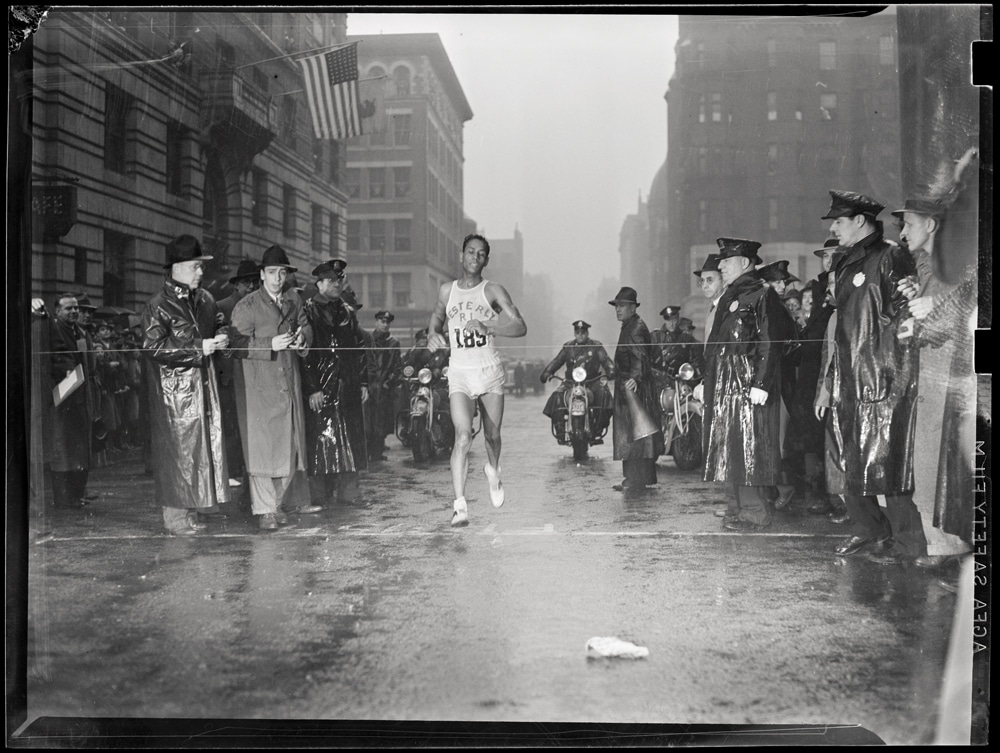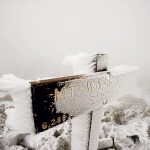King of the Hill | Timeless New England
Remembering Rhode Island’s Ellison “Tarzan” Brown, the only Native American to win the Boston Marathon twice.

Coffee By Design | Portland, Maine
Photo Credit : Katherine Keenan
Photo Credit : Courtesy of Boston Public Library, Leslie Jones Collection
At mile 19 of the Boston Marathon there stands a statue depicting the great Johnny A. Kelley, who started in the race a record 61 times and won it twice. He’s also known for the 1936 duel that inspired the nickname “Heartbreak Hill” for the marathon’s grueling final climb—a duel he lost just a mile from where his statue now stands, and to a runner who is lesser known yet whose achievements are just as worthy of immortalizing.
A Narragansett Indian born in 1913 in Westerly, Rhode Island, Ellison Brown grew up in a large family that struggled to make ends meet. Though his athleticism and love of the outdoors earned him the nickname “Tarzan” (which would follow him throughout his adult life), members of his tribe also knew him by his Narragansett name, Deerfoot.
Brown left school around the seventh grade, by which time he’d already come to the attention of Tippy Salimeno, a local running trainer. With Salimeno’s encouragement, Brown started running—and winning—distance races. He also began capturing the public’s imagination: At the 1935 Boston Marathon, he ran in an outfit made from his mother’s dress; on his feet were beat-up sneakers that he shucked off during the race, running the last miles barefoot to finish in 13th place.
At the 1936 Boston Marathon, Brown, now 22, set such a blistering pace that the press vehicles initially lost track of him. He was so fast, in fact, that when Kelley caught him halfway up the last hill, it seemed inevitable that Brown would fade. Then Kelley tapped Brown on the shoulder (“as much to say, ‘Hey, boy, move over,” Kelley recalled with regret, decades later), and the younger man took off like a rabbit, leaving Kelley to his “heartbreak hill.”
Brown followed that marathon victory with another in 1939, in which he cruised across the finish line at 2:28:51, a new American record, nearly a quarter mile ahead of his closest competitor. In 1940 he ran the Salisbury Beach Marathon in 2:27:30—that year’s world’s fastest time.
Brown retired from running not long afterward, and he passed away in 1975 without much by way of fame or fortune. But his inspiration lives on. “[He] proved anyone was capable of winning,” said Mikki Wosencroft, a Narragansett who ran the 2016 Boston Marathon in Brown’s honor. “It wasn’t just if you had great training or the right equipment and the right shoes … if you had the skill and the gift, you could win.”








It was so nice to read the article about “Tarzan”. My mom told me many years ago that she and Tarzan were neighbors as children and he taught her how to swim and ride a bicycle. Great memories.